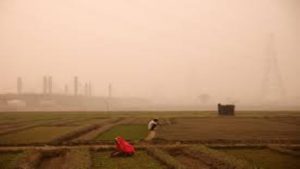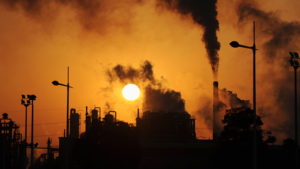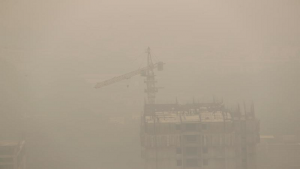The Department of Environment says all new building developments, especially in urban areas, need to consider planting trees to reduce air pollution.
The Department and the City of Johannesburg launched a remembrance garden at Joubert Park in Johannesburg’s inner city as part of their National Arbor Month campaign. It calls on South Africans to plant trees as a practical gesture of sustainable management of the environment.
International Day for Clean Air
The United Nations’ Environment Programme estimates that every year seven-million people die of sicknesses related to air pollution. It says about 90% of the air we breathe is not clean and that is one of the major causes of respiratory illnesses such as chronic lung disease.
Earlier this month, the world marked the first international day for clean air and blue skies to highlight the problem of air pollution and to encourage environmental conservation.
Locally, the national department did not commemorate the day but the City of Johannesburg did.
It launched an air quality monitoring sensor at the Rea Vaya bus station in Braamfontein.
“The quality of the air we have here is extremely not good. Those particles that are in the air end up in our chest. And you’ll see that a lot of people are starting to become asthmatic. There could be many things that cause those particles that are in the air; mine dumps, it could generally be soil erosion because of developments that we’re having in and around the city. They could also be coming in from motor vehicles, emissions that are coming from factories, and so forth,” says the City Department of Environment and Infrastructure’s Stan Itshegetseng.
Itshegetseng says the air quality had improved during the hard lockdown because of reduced economic activity.
“When we were on level 5, the quality of air in most areas, sort of improved, except in townships where it had worsened. But remember big factories that make a lot of emissions were closed. A lot of cars that are driving around were off the streets. So the quality of air at that time improved. Remember that the coronavirus itself affects the respiratory system. So if the air quality is not good, it aggravates, instead of mitigating the recovery situation of people.”
Efforts to reduce air pollution
As part of its efforts to reduce air pollution, the Department of Environment launched National Arbor Month at the beginning of the month.
“The campaign of Arbor [Month] aims to call on South Africans to plant indigenous trees, as a practical gesture of sustainable environment management but also as part of our efforts to make sure that we raise the levels of awareness about arbor, about why tree planting is important. Trees provide us with oxygen, trees absorb harmful carbon-dioxide emissions from the atmosphere, and thus contribute towards combating or reducing greenhouse gas emissions,” says spokesperson Albie Modise.
Modise says new housing projects need to include provisions for planting trees.
“The construction of new urban settlements must take into consideration the planting of trees, whether it’s fruit trees or even indigenous trees. Ultimately we want to make sure that when you fly over low-cost settlements, you’re not going to be met by dull grey or dull soil. We want to make sure that when you fly over, you’re going to see green, the lushness of trees, the environment and the parks that are there, making and decorating the area where people live, irrespective of where they are financially, whether they live in low-cost settlement or top-end settlements, environments must be looked after. It must be clean, lush, and beautiful.”
MMC @ArnoldsMmc: "We encourage government departments, municipalities & individuals to also engage in commemorative tree planting which could be when individuals acquire a new home, when a child is born or any other significant event." #ForestsandBiodiversity #ArborMonth
— Environmentza (@environmentza) September 22, 2020
Effect of Eskom’s power stations
Greenpeace Africa says Eskom’s coal-fired power stations are among the biggest contributors to air pollution. Climate and Energy Campaigner, Nhlanhla Sibisi, says it must be decommissioned.
“The huge focus, unfortunately, is on the economy, and that’s growing the economy, but at what cost. If policy-makers really want to make a difference in terms of us getting clean air, they need to connect the dots, they need to understand how we can address the air pollution problem. And that is phasing away from the burning of fossil fuels, whether it’s through coal-fired power stations or other types of fuels. A holistic approach when it comes to policymaking needs to consider health as much as it also considers the economy.”
Citizens can also help in curbing pollution by planting trees and by walking or cycling more. People are urged to use lift clubs and public transport to limit the number of cars on the road and contribute to reducing air pollution.






